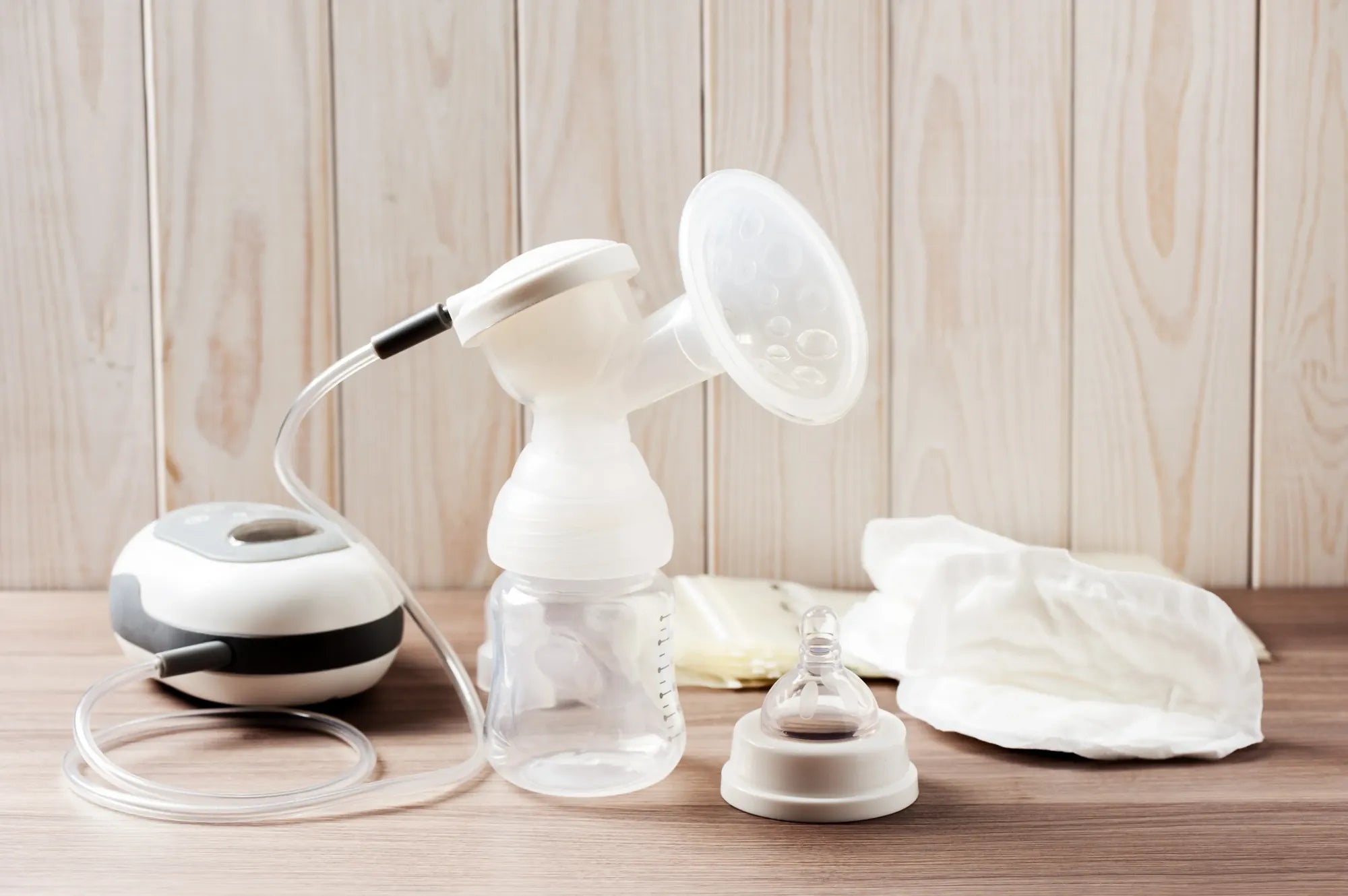Inicio
Pregnancy, Breastfeeding, and Pumping: The Ultimate Guide for Moms
Can I Use a Breast Pump at 37 Weeks Pregnant? What You Need to Know

Can I Use a Breast Pump at 37 Weeks Pregnant? What You Need to Know
As you approach the final weeks of pregnancy, you may be wondering about the best ways to prepare for breastfeeding. One common question many expectant mothers ask is, Can I use a breast pump at 37 weeks pregnant? The answer is not straightforward, as it depends on various factors, including your health, your baby's development, and your healthcare provider's advice. This article dives deep into the topic, providing you with the information you need to make an informed decision.
Understanding the Role of a Breast Pump
A breast pump is a device designed to extract milk from the breasts. It can be a valuable tool for mothers who plan to breastfeed, especially in situations where direct breastfeeding is not possible. Breast pumps come in different types, including manual and electric models, each with its own set of features and benefits.
Why Consider Using a Breast Pump at 37 Weeks?
At 37 weeks pregnant, you are considered full-term, and your body is likely preparing for labor and delivery. Some women consider using a breast pump at this stage for several reasons:
- Colostrum Collection: Colostrum, the first milk your body produces, is rich in nutrients and antibodies. Collecting it early can be beneficial for your baby, especially if there are concerns about low birth weight or other health issues.
- Nipple Stimulation: Some believe that nipple stimulation can help induce labor, although this is not universally supported by medical evidence.
- Preparation for Breastfeeding: Using a breast pump can help you become familiar with the process and ensure your body is ready to produce milk after delivery.
Is It Safe to Use a Breast Pump at 37 Weeks?
The safety of using a breast pump at 37 weeks pregnant depends on your individual circumstances. Here are some key considerations:
- Consult Your Healthcare Provider: Before using a breast pump, it is essential to consult your healthcare provider. They can assess your health and your baby's development to determine if it is safe for you.
- Risk of Preterm Labor: Nipple stimulation can release oxytocin, a hormone that may trigger contractions. If you are at risk of preterm labor, your healthcare provider may advise against using a breast pump.
- Hygiene and Proper Use: Ensure that the breast pump is clean and used correctly to avoid any risk of infection.
Benefits of Using a Breast Pump at 37 Weeks
If your healthcare provider gives you the green light, using a breast pump at 37 weeks can offer several benefits:
- Early Milk Supply: Collecting colostrum can help establish your milk supply and ensure your baby gets the nutrients they need right after birth.
- Confidence and Preparation: Familiarizing yourself with the breast pump can make the transition to breastfeeding smoother and less stressful.
- Support for Special Circumstances: If your baby is expected to have health issues or if you plan to return to work soon after delivery, having a supply of colostrum can be beneficial.
Potential Risks and Precautions
While there are benefits, there are also potential risks associated with using a breast pump at 37 weeks:
- Premature Labor: As mentioned earlier, nipple stimulation can trigger contractions, which may lead to premature labor in some cases.
- Discomfort or Pain: Using a breast pump incorrectly or for extended periods can cause discomfort or even pain.
- Infection Risk: Improper cleaning of the breast pump can lead to infections, which can be harmful to both you and your baby.
How to Use a Breast Pump Safely at 37 Weeks
If you decide to use a breast pump at 37 weeks, follow these guidelines to ensure safety and effectiveness:
- Consult Your Healthcare Provider: Always seek professional advice before starting.
- Choose the Right Pump: Select a breast pump that is comfortable and easy to use.
- Start Slowly: Begin with short sessions to see how your body responds.
- Maintain Hygiene: Clean the breast pump thoroughly before and after each use.
- Monitor for Contractions: If you experience any contractions or discomfort, stop using the pump immediately and consult your healthcare provider.
Alternatives to Using a Breast Pump at 37 Weeks
If using a breast pump is not recommended for you, there are other ways to prepare for breastfeeding:
- Hand Expression: This method involves manually expressing colostrum and can be a safer alternative for some women.
- Breastfeeding Classes: Attending classes can help you learn techniques and build confidence for breastfeeding.
- Nutrition and Hydration: Maintaining a healthy diet and staying hydrated can support milk production.
When to Seek Medical Advice
If you experience any of the following while using a breast pump at 37 weeks, seek medical advice immediately:
- Regular contractions or signs of labor >Pain or discomfort that does not subside >Signs of infection, such as fever or redness in the breast area
Using a breast pump at 37 weeks pregnant can be a helpful way to prepare for breastfeeding, but it is not without risks. Always consult your healthcare provider before starting, and follow proper guidelines to ensure safety. With the right preparation and care, you can set yourself up for a successful breastfeeding journey.
Ready to take the next step in your breastfeeding journey? Whether you decide to use a breast pump or explore other options, being informed and prepared is key. Your healthcare provider is your best resource for personalized advice, so don't hesitate to reach out with any questions or concerns.
Compartir


